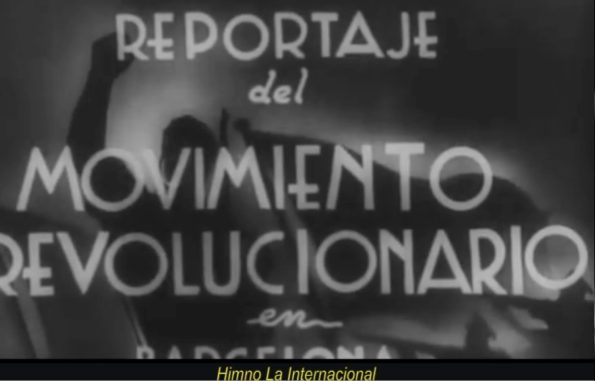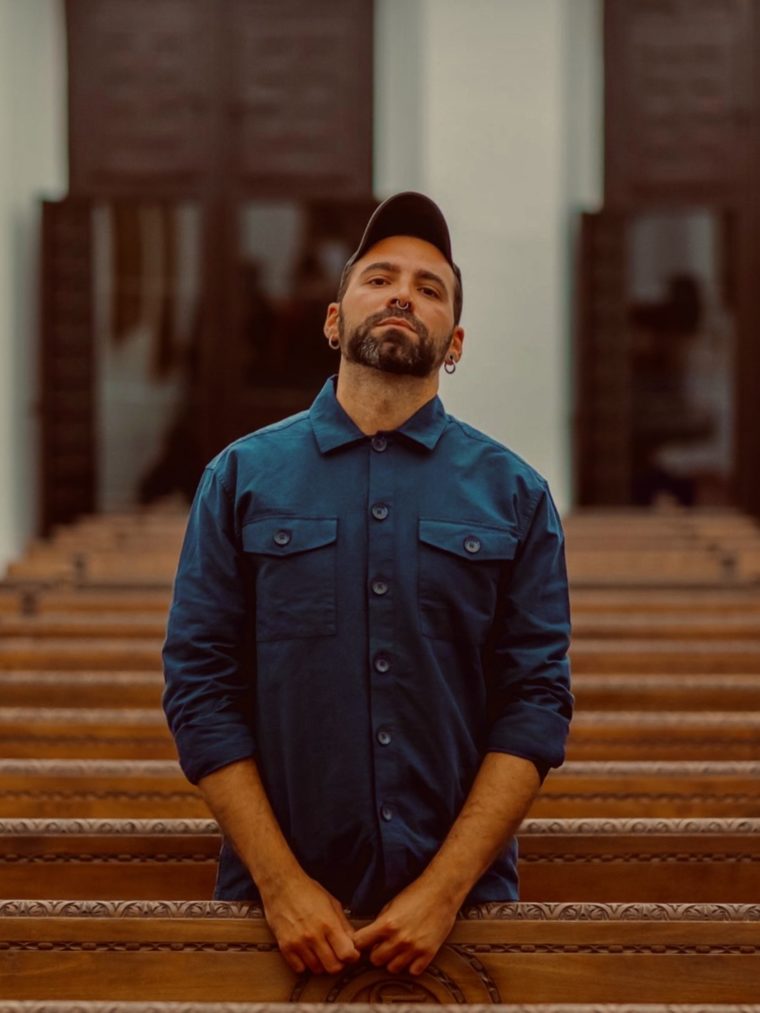Search
To search for an exact match, type the word or phrase you want in quotation marks.
A*DESK has been offering since 2002 contents about criticism and contemporary art. A*DESK has become consolidated thanks to all those who have believed in the project, all those who have followed us, debating, participating and collaborating. Many people have collaborated with A*DESK, and continue to do so. Their efforts, knowledge and belief in the project are what make it grow internationally. At A*DESK we have also generated work for over one hundred professionals in culture, from small collaborations with reviews and classes, to more prolonged and intense collaborations.
At A*DESK we believe in the need for free and universal access to culture and knowledge. We want to carry on being independent, remaining open to more ideas and opinions. If you believe in A*DESK, we need your backing to be able to continue. You can now participate in the project by supporting it. You can choose how much you want to contribute to the project.
You can decide how much you want to bring to the project.

The relationship between knowledge and economics has not only determined the field of thought production, in terms of what kind of knowledge generates economic (and therefore legitimate) surplus value, but the dialectic between both powers has also organized our symbolic life in the form of activities that we call Work, a legacy of the hypothetical Modern Progress based on the Christian narrative.[1]The Industrial Revolution as a paradigm of Modernity was based on a historical narrative that was part of the existential dogma of Euro-centric, and therefore Christian, societies. Beginning with … Continue reading. With the aim of regulating, organizing, specializing, departmentalizing, dominating and controlling what is produced and enunciated, Work as a disciplinary action becomes “social movement,” in the sense that it is not alien to society but rather constitutes and orders it in its process of abstraction, with ideologies about who, what and how our efforts should be, hypothetically, rewarded.[2]The capitalist narrative that creates motivating and naive phrases such as “count on me,” “work hard and you will go far,” and “all efforts will be rewarded,” are very useful for … Continue reading. Capitalism, which feeds on physical, proletarian Work as the only possible element for sale, has invented rules that it enforces through institutions closely linked to generating wealth at the top of the financial pyramid, which is supposed to be “natural.” However, Max Weber showed that liberalism created an inflation of economic institutions driven by bureaucracy,[3]The Bureaucratization of the World in the Neoliberal Era. Hibou, B., causing an increase in legislative and administrative measures that monetize and centralize the production and consumption that determines Work, its types, offers and demands, with the resulting social class as a legitimized specialty.[4]The specialization of work as an active element of capital accumulation not only serves to endow the figure of the person who calls himself a “specialist” with an ego, supporting differences and … Continue reading It is important, therefore, to consider how not only is there nothing “natural” about the market, but also that Work as a mechanism of domination, alienation and modern slavery has become a multidimensional phenomenon that blocks class struggle by forcing proletarians into survival mode. The capitalism that dominates societies in military fields that obey the master and that has turned the basic rights of housing, food, education and culture into elements of privilege, has served as a fascist mechanism to emphasize gender and sexual differences, has generated, organized and evaluates social classes insofar as their usefulness, and has created an official hegemonic historical narrative that needs to be criticized.
| ↑1 | The Industrial Revolution as a paradigm of Modernity was based on a historical narrative that was part of the existential dogma of Euro-centric, and therefore Christian, societies. Beginning with “By the sweat of your brow you shall earn your bread” (Genesis 3:19), it was believed that societies should “strive” to build a better present and future through mechanization and knowledge that would help improve their lives (based on Power and Authority, Weber, Max). |
|---|---|
| ↑2 | The capitalist narrative that creates motivating and naive phrases such as “count on me,” “work hard and you will go far,” and “all efforts will be rewarded,” are very useful for economically underdeveloped societies, since they present formulas of continuity to keep from perishing in one’s attempt to climb the peak reserved for the bourgeoisie and wealthy. |
| ↑3 | The Bureaucratization of the World in the Neoliberal Era. Hibou, B. |
| ↑4 | The specialization of work as an active element of capital accumulation not only serves to endow the figure of the person who calls himself a “specialist” with an ego, supporting differences and thus a hierarchy of knowledge, but also classifies and judges others. If for some reason we do not become a professional of “that for which we have supposedly prepared ourselves,” the result is frustration, anxiety and a lack of understanding. |
| ↑5 | Artistic work. |
| ↑6 | One of the strategies that capitalism has used to erect itself as the only model of survival is to deny other life alternatives, and those models that we know tend to construct poverty from the economy, approaching it with the politics of compassion towards those who, for various reasons, have not developed adequately in the logic of the growth of aggressive progress. |
| ↑7 | As religions have done and continue to do, the promise of a better future is one of the mechanisms that have been and are used to replicate the same vertical structure. The Radicant by Borriaud, N. |
| ↑8 | One of the symptoms that shows how capitalism has used culture as a symbolic and economic motor is the use of terms typical of the business sphere: cultural industries, production, objectives and budgets suppose logics of thinking of culture as a formal element of liberalism. |
| ↑9 | , To consider oneself an artist because “they can live from their work as an artist” is to not consider the privileges that have allowed them to carry out such work. |
| ↑10 | Birth of Biopolitics: Lectures at the Collège de France (1978-1979). Foucault, M. |

Daniel G., an artist who received his PhD from the University of Barcelona (2015), questions dominant discourses built by de facto powers about identity, work, class and consumption that create forms of fiction and/or reality. He began his career combining research and artistic production, investigating the mechanisms of hegemonic narratives. Since 2016, he has obtained several scholarships, including P. Juncosa Education Grant (Mallorca 2016), Inter Grant ETAC (Mallorca 2016), Casa Elizalde Visual Arts Grant, UNZIP (El Prat de Llobregat, 2017), Sala d’Art Jove Education Grant (2018), and La Escocesa Artistic Experimentation and Research Grant (2019). He forms part of the research group project Asymmetries at Fabra&Coats de Idensitat (Barcelona 2018/19). Since 2018, he develops the design and content of projects for the Visuals Arts Intersections program of the El Prat de Llobregat City Council and currently designs the Public Programs of the La Capella Art Center in Barcelona. In 2021/22, he presented Arte (in)útil: Sobre cómo el capitalismo desactiva la cultura (Useless Art: How Capitalism Deactivates Culture) with Rayo Verde Publishers, which grew out of his doctoral thesis, and has also presented Orden Público: Vagos, Maleantes y Peligrosidad Social (Public Order: Bums, Crooks and Social Danger) in the Chiquita Room Gallery for which he smuggled files from the Catalonia National Archive of Justice into the exhibition space.
"A desk is a dangerous place from which to watch the world" (John Le Carré)